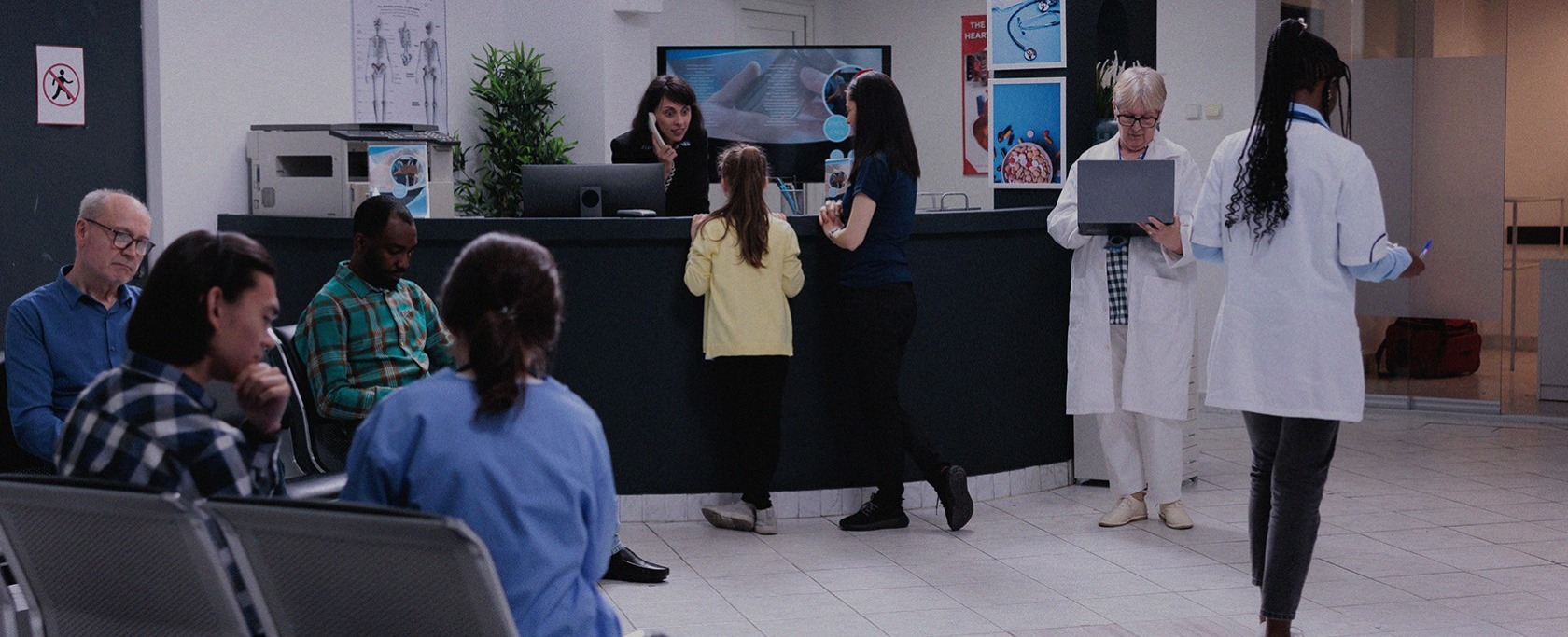Buying a medical practice – due diligence fundamentals
Overview
When buying any business, undertaking thorough due diligence is a key step in the acquisition process. What is required in due diligence will typically vary to some degree depending on the industry in which the target business operates.
Medical practices operate in a unique way compared to other types of business which, in turn, create unique due diligence requirements. This article sets out the due diligence essentials that will (typically) need to be accounted for when acquiring a medical practice.
Due diligence essentials
Entity structure
The first thing to be aware of when buying a medical practice is the way in which the business is structured. This may be simple, like a single company operating the business, or more complex and involving multiple entities including companies and trusts.
Where the structure involves one or more companies, it is important to:
- identify the shareholders, including the shareholders of any holding companies or subsidiaries;
- identify the correct seller or sellers. This may be the shareholders in a share sale, or the owners of the assets in an asset sale.
Where the structure involves one or more trusts, make sure you identify the trustee(s) and beneficiaries. Where one or more trustee is a company, make sure you complete the same steps set out above in relation to companies.
Ultimately, the most important questions to answer, where a medical practice is structured in a way that involves more than one entity, (whether companies or trusts) is:
- who is the party, or parties, that will be selling you the assets or shares; and
- whether the seller has the legal right to sell those assets or shares.
Personnel
When buying a medical practice, it is important to be aware of the way it has engaged and remunerates its staff, including clinicians, nurses, and administrative staff. Often, personnel will be engaged through a combination of the following arrangements.
Clinicians
Instead of the medical practice employing or engaging the clinician, there will often be an arrangement whereby:
- the clinician engages the medical practice so that the medical practice is the clinician’s contractor.;
- the medical practice is entitled to a percentage of the clinician’s billings as a fee paid for services provided by the practice (such as providing equipment and administrative assistance).
This style of arrangement is typically put in place so that the practice can avoid paying payroll tax and superannuation on behalf of the clinician. However, if the arrangement is not implemented correctly, the medical practice may be required to retrospectively pay superannuation and payroll on behalf of the clinician.
Nursing staff and admin
Nursing staff and admin in a medical practice will typically be engaged as either contractors or employees. This will impact matters such as whether they are entitled to annual and long service leave, whether they are protected from unfair dismissal, and other similar concerns.
Identifying key personnel
When buying a medical practice, it is important to ensure you have identified all key personnel who will be retained once you have acquired the practice. Once identified, you need to undertake due diligence on the contracts between the practice and these personnel to determine:
- how they have been engaged;
- whether the written terms of their engagement accurately reflect the way they are treated. For more on this, see our article discussing the difference between employees and contractors here;
- whether they have any unusual provisions in the terms of the engagement, for example a guaranteed bonus or a longer than ordinary notice period.
Accrued and paid entitlements
Regardless of how personnel have been engaged, it’s always crucial to determine:
- what entitlements are owed to the personnel;
- what entitlements are accrued but unpaid (for example, leave entitlements); and
- whether all historical entitlements have been paid (for example, superannuation and PAYG tax withholding).
Regulatory compliance
When buying a medical practice, clinicians and nurses will typically be subject to regulatory requirements, which will often fall under Ahpra. A buyer should request and undertake searches verifying:
- each clinician and nurse’s registration under Ahpra;
- whether any clinicians or nurses have been subject to disciplinary proceedings; and
- whether any clinicians or nurses have practice conditions applied to their Ahpra registration (such as supervision requirements or prohibitions on certain activities).
Payroll tax and superannuation issues
Payroll
As at the date of this article, payment of payroll tax in the context of medical practices is a hotly discussed issue. Historically, medical practices sought to engage clinicians as contractors to avoid liability for payroll tax. However, two landmark cases in the last 6 years have changed the legal landscape in finding that relevant state payroll legislation may apply to arrangements between medical practices and clinicians.
For someone buying a medical practice, it is important to determine whether payroll is or is likely to be payable in respect of medical practitioners, and whether historic payroll liabilities have been complied with. To determine this, buyers should request to review:
- any tax advice provided to the target business on this issue;
- BAS and payroll records for the past 7 years;
- remittance reports.
Superannuation
As well as payroll issues applying to clinicians, the target business will likely have superannuation obligations in respect of some, if not all, of its personnel. Even where it has nursing and administrative staff engaged as contractors, superannuation is often still payable. As such, buyers should ensure that all superannuation obligations of the medical practice have been complied with by requesting copies of all superannuation payment records and reviewing these against the relevant service contracts.
Premises
Lease
When buying any business, the arrangement under which the business uses its premises needs to be identified and understood. Most commonly, this will involve a lease over one or more locations. Copies of the lease, and any amendments to the lease, should be requested to identify:
- The term of the lease and whether there are options to renew. If, for example, there are only a few months left in the lease term with no options to renew, there is a possibility that the buyer will need to relocate the business. Not only will this incur costs, it could also impact the value of the business, as relocating could mean a loss of customers.
- What rent increases are expected in the future.
- The tenant’s financial obligations as to outgoings and insurance.
Zoning
As well as reviewing the terms of the lease, a buyer should ensure that the premises are in a zone in which the type of medical practice is able to operate. This can be verified by reviewing (or instructing a town planner or property lawyer to review) the relevant planning code.
Assets
Whether buying a medical practice by way of share sale or asset sale, due diligence needs to be undertaken into the assets of the business to ensure they are satisfactory. This includes:
- Ensuring the assets are in good working order. This can be verified by attending the premises of the business and physically inspecting the assets.
- Confirming whether the assets are subject to any encumbrances such as securities. Registered securities over the assets can be confirmed by undertaking a PPSR search on the owner of the assets. However, unregistered securities will not be discovered by a PPSR search. This risk should be mitigated against by including a warranty to the effect that the assets are either not subject to any unregistered securities, or that all unregistered securities have been disclosed (see more on warranties below).
Due diligence in asset sale v share sale
While there is plenty of overlap, the nature of due diligence into a medical practice will vary depending on whether you are acquiring the target business by way of share sale or asset sale.
Asset sale
In an asset sale, the buyer is acquiring all assets required to operate the target business. This includes tangible assets, such as equipment and vehicles, and intangible assets, such as intellectual property, goodwill, contracts, and client lists.
As such, it is important to confirm:
- That all intellectual property is owned by or lawfully licensed to the seller. This can be verified by conducting trademark searches, and reviewing contracts of suppliers to ensure that intellectual property is adequately transferred or licensed to the seller.
- What, if anything, is required for the seller to transfer the contracts to the buyer. Often, contracts will include a provision preventing a party from transferring a contract without the consent of the other party. If such a clause exists, you will need to ensure the seller takes the correct steps to transfer the contracts.
Share sale
In a share sale, the buyer is acquiring all the shares in the company that owns the assets. As such, ownership of the assets isn’t changing hands. However, as you are buying the company, you are also buying all the historic liabilities of that company, including tax liabilities.
In a share sale, it is important to confirm the following in due diligence:
- That all tax liabilities and obligations of the company have been complied with.
- As you are acquiring the shares, it is also important to ensure that the shares are not subject to any encumbrances. This can be verified by a PPSR search over the seller of the shares.
Further protection for buyers
Unfortunately, no amount of due diligence can give a buyer 100% certainty that the business they are buying is risk free. To further mitigate their risk, buyers should ensure properly drafted warranties and indemnities are included in the relevant sale agreement.
Warranties
In a business sale, a warranty is a statement of fact by the seller regarding the health of the business. If the warranty is found to be untrue, and results in loss to the buyer, it can sue the seller for a warranty breach. A common example of a warranty in a business sale agreement is a warranty by the seller that all tax obligations of the business have been complied with. If the buyer later learns that this is untrue, the buyer can sue the seller for the tax liability owed.
Even when thorough due diligence has been completed, a buyer should ensure there is a comprehensive warranty regime. In the context of buying a medical practice, this should include warranties relating to:
- compliance by the practice and all clinicians with regulatory requirements such as Ahpra, licensing, and privacy requirements;
- that all Medicare billing requirements have been complied with;
- the maintenance by the practice and all clinicians of medical indemnity insurance;
- ensuring that no medical negligence claims have been made, or are likely to be made, against the practice or any of its clinicians.
Indemnities
An indemnity is a promise by one party to financially compensate another for liability it incurs. For example, it is common for a seller to indemnify the buyer against any loss it suffers for a warranty breach. As well as this general indemnity, a buyer should seek indemnities for the following risks:
- Any unpaid payroll tax liability.
- Any medical negligence claims relating to events that occurred before the business sale completes.
- If any specific risks are identified as part of due diligence, specific indemnities tailored to those risks.
Earn outs
If you are unconvinced about the purchase price being proposed by a seller (for example, if you are unsure whether the medical practice will generate sufficient revenue to justify the proposed purchase price), you can seek to include an earn out regime as an alternative to a fixed purchase price.
This is a process by which the seller is paid amounts post-completion based on the income (often EBIT) of the business in the months or years after the sale completes. For more on earn outs, see our article here.
Looking to buy a medical practice?
If you’ve ever heard the expression ‘buyer beware’, you know the importance of ensuring your business acquisition is handled competently.
Nine Dots Legal’s commercial and corporate team specialise in mergers and acquisitions and has extensive experience in buying and selling businesses of all types, including medical practices. If you want to discuss further, our contact details are below.






